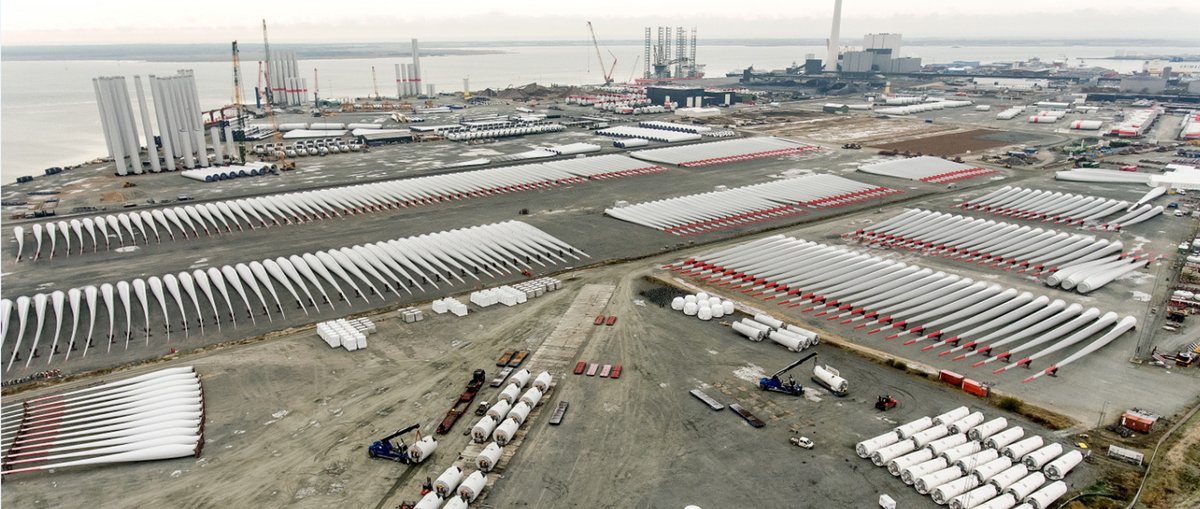New chapter in @SpringerNature Handbook of Climate Change Mitigation and Adaptation https://abs.twimg.com/emoji/v2/... draggable="false" alt="📗" title="Grünes Buch" aria-label="Emoji: Grünes Buch">
https://abs.twimg.com/emoji/v2/... draggable="false" alt="📗" title="Grünes Buch" aria-label="Emoji: Grünes Buch">
Mogens Rüdiger and I explore how the oil, gas and coal-based DONG Energy transformed into the & #39;green giant& #39; @Orsted - and what it reveals about the green transition. https://link.springer.com/referenceworkentry/10.1007%2F978-1-4614-6431-0_160-1">https://link.springer.com/reference...
Mogens Rüdiger and I explore how the oil, gas and coal-based DONG Energy transformed into the & #39;green giant& #39; @Orsted - and what it reveals about the green transition. https://link.springer.com/referenceworkentry/10.1007%2F978-1-4614-6431-0_160-1">https://link.springer.com/reference...
We identify how a combination of mission-oriented innovation policy (see @MazzucatoM) in Denmark and exercise of & #39;innovative enterprise& #39; (see @Lazonick) led to the development of an offshore wind industrial ecosystem that remains an export stronghold.
As such, we explore the microfoundations of the breathtaking cost trajectories and learning curves of renewable energy technologies. The primary outcome of deployment has not been decarbonisation, but cost reduction.
(For solar PV see @GregNemet https://www.amazon.com/dp/0367136597/ref=cm_sw_su_dp)">https://www.amazon.com/dp/036713...
(For solar PV see @GregNemet https://www.amazon.com/dp/0367136597/ref=cm_sw_su_dp)">https://www.amazon.com/dp/036713...
As pointed out by John Mathews and Erik Reinert in 2014, the great advantage of renewable energy over fossil fuel tech is that the & #39;fuel& #39; is free, abundant and & #39;harvested& #39; by the use of manufactured goods, which enables economies of scale and https://www.sciencedirect.com/science/article/pii/S0016328714000731?via%3Dihub">https://www.sciencedirect.com/science/a...
learning-by-doing to bring down costs. The transformation of DONG Energy to @Orsted thus epitomises @ramez& #39;s description of how clean energy has evolved from policy-dependent towards the cusp of disruption of even existing fossil electricity assets. https://rameznaam.com/2019/04/02/the-third-phase-of-clean-energy-will-be-the-most-disruptive-yet/">https://rameznaam.com/2019/04/0...
Denmark is currently benefiting from its first-mover advantage as other countries are looking to benefit from the cost reductions in wind tech. It turns out cumulative causation (see Kaldor) in industry is tough to break for competitors. https://www.ft.com/content/50cd8a9d-3f2a-461d-9335-08319c5f7626">https://www.ft.com/content/5...
Nonetheless, as the green techno-economic paradigm (see @CarlotaPrzPerez) unfolds and the global economy is electrified, competition will undoubtedly increase. It remains to be seen if the green stronghold will persist. https://www.ft.com/content/6d5ae970-091a-47e9-8150-7835e5cb6eb2">https://www.ft.com/content/6...
One crucial lesson we draw is that politicians should understand the need to create markets for burgeoning sustainable technologies to be deployed and mature through economies of scale and learning by doing. R&D and CO2-taxes alone are unlikely the optimal policy mix.
This lesson corresponds to the call by Ha-Joon Chang & @AntoAndreoni to re-focus attention to two neglected issues in contemporary industrial policy debates: "production and the role of the state". https://onlinelibrary.wiley.com/doi/pdf/10.1111/dech.12570">https://onlinelibrary.wiley.com/doi/pdf/1...
A draft of the chapter has contributed to this neat @IIPP_UCL report by @rainerkattel & @JonasAlgers: Equinor and Ørsted: How industrial policy shaped the Scandinavian energy giants.
Do check it out!
// https://www.ucl.ac.uk/bartlett/public-purpose/publications/2021/mar/equinor-and-orsted-how-industrial-policy-shaped-scandinavian-energy-giants">https://www.ucl.ac.uk/bartlett/...
Do check it out!
// https://www.ucl.ac.uk/bartlett/public-purpose/publications/2021/mar/equinor-and-orsted-how-industrial-policy-shaped-scandinavian-energy-giants">https://www.ucl.ac.uk/bartlett/...

 Read on Twitter
Read on Twitter




